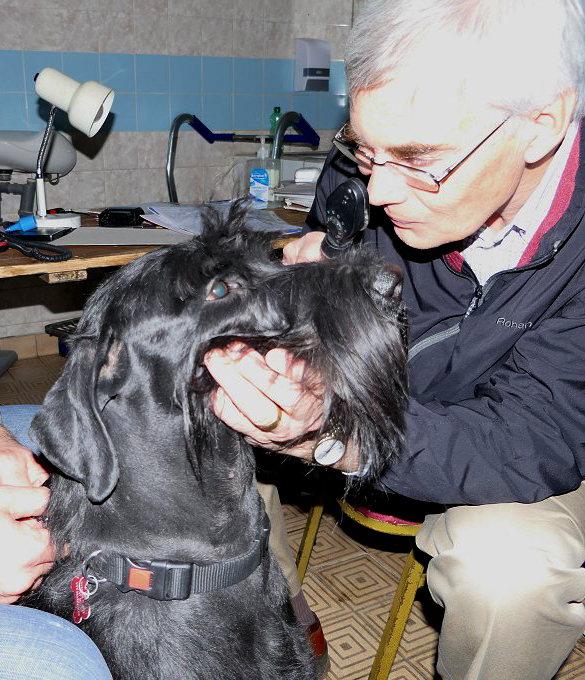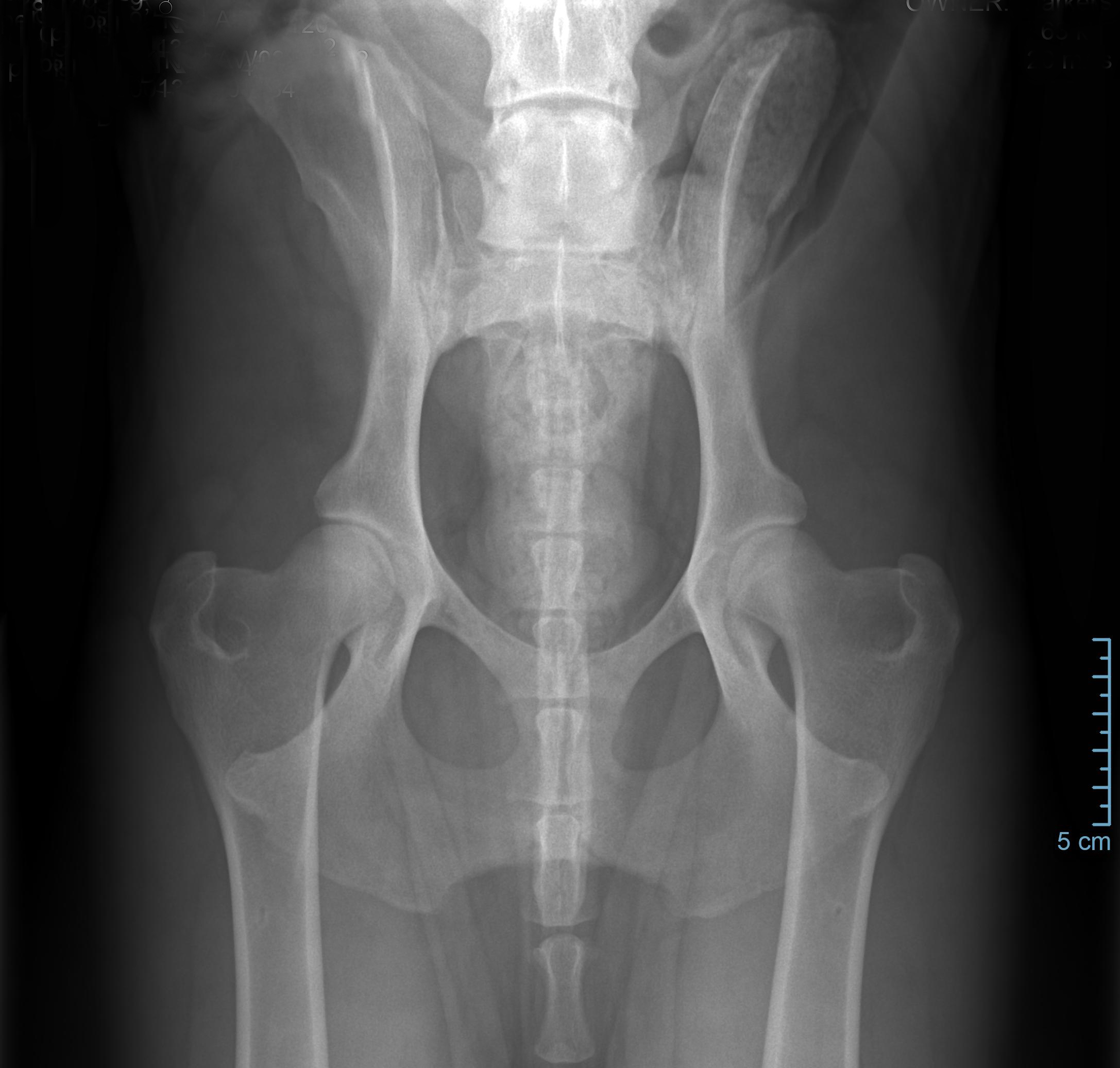Required and Recommended Health Screening
Required Health Screening
 1. Annual Eye Testing of breeding stock for Hereditary Cataracts (HC)
1. Annual Eye Testing of breeding stock for Hereditary Cataracts (HC)
Giant Schnauzers are currently listed on Schedule A of the KC/BVA/ISDS Eye Scheme for Hereditary Cataracts. All breeding stock should be eye tested annually before breeding takes place. The sire and dam should hold a current, clear eye certificate to ensure they are clinically unaffected within 12 months prior to the date of any mating. Additionally, since the age of onset can occur later in life, it is advisable to continue eye testing into old age. More information about Hereditary Cataracts can be found on the dedicated Health Information website.
Approved BVA Eye Panellists – Find an eye panellist
Recommended Health Screening
 1. Hip scoring of breeding stock for Hip Dysplasia (HD)
1. Hip scoring of breeding stock for Hip Dysplasia (HD)
Hip scoring can be done from the age of 12 months and is currently recommended for Giant Schnauzers prior to breeding. An x-ray is taken by a vet experienced with hip positioning for scoring, and x-ray sent away to a recognised scoring specialist most often the BVA in the UK. Alternatively ANKC, FCI and OFA (from 24 months) and also provide a canine hip dysplasia scoring scheme. Hips should ideally be even, and scores should be below or around the breed median which is approximately 10 and breed average around 14.
Elbows can also be graded, and are often x-rayed at the same time as hips and sent away for grading along with hips. Elbow grades should ideally be 0, and it is not recommended to breed from an elbow grade above 1.
2. DNA Test prcd-PRA (Progressive Retinal Atrophy) – A blinding eye condition
3. DNA Test PRA5 (Progressive Retinal Atrophy – NECAP1) – A blinding eye condition
4. DNA Test DCM (Dilated Cardiomyopathy) – A fatal heart condition
5. Eye testing (litter screening) of puppies for Multifocal Retinal Dysplasia (MRD)
It is recommended that puppies are eye tested for MRD, and any other congenital abnormalities, between 5 to 12 weeks of age before leaving the breeder. The litter screen is carried out by a recognised eye panellist vet.

